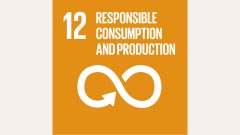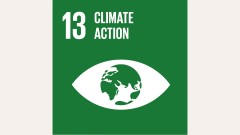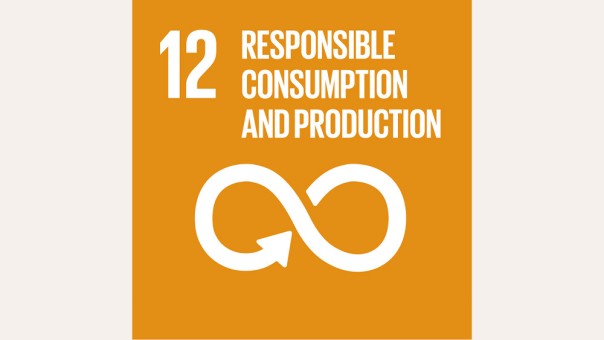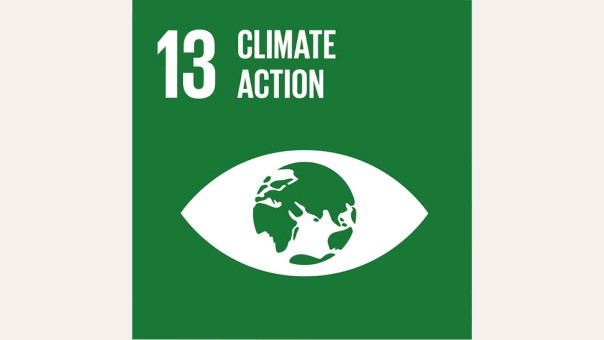Jürgen Perschon from Hamburg and actor Bjarne Mädel are helping the transition to sustainable and environmentally friendly mobility in Africa. They talk to KfW Stories about their motivation, the assistance they are receiving from KfW subsidiary DEG and about the AfricroozE, the bicycle that can save lives.
Mr Perschon, how did you come up with the idea of sending electric bicycles to Africa?
Perschon: The idea came to me last time I was in Uganda, where we were struck by the growing number of roofs with solar cells on them. And at the same time, e-bikes are everywhere here in Germany. This prompted me and my initiative, EURIST, to think about whether the two things could be combined.
And why did you get involved in this project, Mr Mädel?
Mädel: Sometimes people think that we want to change everything, that we want to rid Brazil of all cars. Which is a bit of a crazy idea. This project with the bicycles was so simple and feasible that it won me over right away.

Dr. Jürgen Perschon
Founder and Managing Director of EURIST e.V.
Do you have your sights set on even higher targets with this project?
Perschon: We want to use bicycles to help combat climate change in Africa. That is a central aim of the project. But of course there are also social and economic aspects. By this I mean helping to found start-ups, creating jobs and opening up mobility to more women. Women are the driving force of African economies.
Mädel: We need to understand that we all share this world and that it’s not enough for our own neck of the woods to be nice and pretty. We need to think globally. The exhaust gases are produced in the West, here in the First World. And people in the Third World are paying the price for our luxury. This is why I feel we have a responsibility to improve the well-being of people in Africa. And e-bikes can play their part in this regard.

Bjarne Mädel
Actor and director
Do you have more of an affinity with bicycles or with Africa?
Perschon: Back when I was a student in 1996, I cycled my bike 3,000 kilometres through East Africa and saw how vital it is for a family to have transport. That’s where the spark was lit for me.
Mädel: I’m not much of a cyclist. But I do have an affinity with Africa.

A affinity for Africa and bicycles
Jürgen Perschon cycled 3,000 kilometres across East Africa on his own bike as a student - and Bjarne Mädel even lived in Nigeria for a while as a 14-year-old.
How did this come about?
Mädel: I lived in Nigeria when I was 14. And even back then, it was chock-a-block in the capital city, Lagos. Although the city was only built for 900,000 people, there were already nine million living there. People move to the city from rural areas. Even leaving aside the environmental impact of more and more people driving cars and riding motorbikes, the chaos inevitably reaches a point where it can’t be coordinated any more. In cities like that, it might already be too late to turn things around. But in smaller cities, many people are currently persuading policymakers to build bicycle lanes early on and get people to cycle instead of drive.
What kind of bicycles will you be bringing to Africa?
Perschon: The e-bikes are produced in India by the world’s largest bicycle manufacturer, Hero Cycles, for a fraction of the usual cost. All parts – from screws and bottom brackets to spokes and wheel rims – are designed according to German standards and assembled in India. This gives us an e-bike that ultimately has a charge capacity of 460 Wh, can travel 30 km/h and cover a radius of between 40 and 50 kilometres. Our expert African partners contributed to the overall design. They told us that the bikes need a low frame so that women can ride them too. We needed a motorbike-type look because normal bicycles are not seen as status symbols in Africa. We needed another name and called it AfricroozE. So we have pretty much reinvented the e-bike for Africa. Plus, almost all spare parts are available on the local markets.
In Germany, an e-bike is more of a lifestyle product but in Africa, it aims to meet a basic need ...
Perschon: Lots of people we spoke to were perplexed because they thought that e-bikes were far too expensive for Africans, that they wouldn’t be able to afford them. But because there’s so much to be transported in Africa, there’s a particularly great need for cargo e-bikes there. Here in Europe, bicycle culture is evolving as an alternative to driving cars. But in Africa, it’s a whole other story.
Mädel: Bicycles can be used in lots of different ways there. They are used to transport goods – water, for example – and as taxis for transporting people. There is also a trailer that can be used as an ambulance. I was in Uganda and saw that at first hand. I found it hugely impressive that you can save people’s lives with a bicycle powered by solar energy.

A distance of up to 50 kilometres
The battery of the AfricroozE has a charging capacity of 460 Wh. This allows the e-bike to travel at speeds of up to 30 km/h.
Save people’s lives?
Mädel: We were shooting outside a healthcare centre when a motorbike arrived with three passengers. In the middle was a pregnant woman with blood running down her legs. A motorbike is no way to transport ill people or pregnant women over hilly terrain. But for many people, it’s the only option they can afford – a car or taxi would simply be out of the question. And there are no buses here. So providing villages with bicycles like this can save lives – and when women experience serious problems when giving birth, the bicycles can be used to transport them to healthcare centres. We asked afterwards how the woman was and were told that she survived. But the nurse added that that isn’t always the case. Some women are already dead when the motorbike arrives. And that really shocked me and gave me one more very good reason to support the project.

How many of these bicycles are already being used in Africa?
Mädel: The project began with three bicycles. They have covered over 20,000 kilometres, powered only by the sun. And a container with 100 bicycles is on its way to Uganda as we speak.
Perschon: The pilot project with the first 100 e-bikes has been covered by KfW subsidiary DEG. They gave us the funds to manufacture 100 e-bikes and test them in Uganda. Our aim is to have 2,000 e-bikes in use in East Africa by 2022. And our ultimate aim is to have tens of thousands of e-bikes in circulation. We have to think big if we want to kick-start a change in mobility in countries of the South.
Isn’t that still just a drop in the ocean?
Mädel: The project isn’t going to change the whole world but at least it will prevent even more motor vehicles being driven in certain parts of the world. Anyone who has an e-bike doesn’t need to buy a motorbike. And that makes people’s lives easier. I don’t really believe you can alter the course of the world with e-bikes. But perhaps we can slow things down a little.
Published on KfW Stories: 27 October 2021.
The described project contributes to the following United Nationsʼ Sustainable Development Goals
Goal 7: Ensure access to affordable, reliable, sustainable and modern energy
Close to 80 per cent of the energy produced worldwide still comes from fossil fuel sources. Burning fossil fuels also generates costs for the health system due to air pollution and costs for climate-related damages that harm the general public, not just those burning the fuel.

All United Nations member states adopted the 2030 Agenda in 2015. At its heart is a list of 17 goals for sustainable development, known as the Sustainable Development Goals (SDGs). Our world should become a place where people are able to live in peace with each other in ways that are ecologically compatible, socially just, and economically effective.











Data protection principles
If you click on one of the following icons, your data will be sent to the corresponding social network.
Privacy information